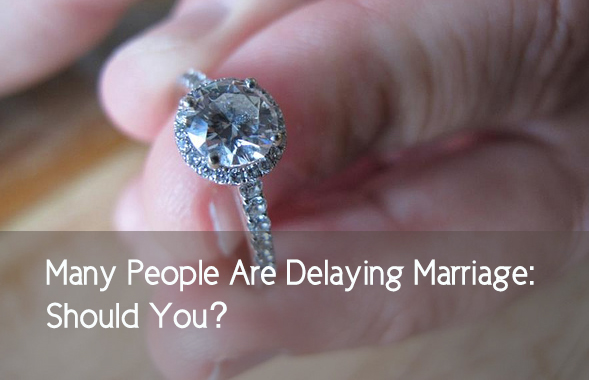Posted on May 6, 2014 by Andrea Fisher

image by buzzfarmers adapted for use under creative commons
Millions of Americans consider marriage to be a sacred and cherished life event; their wedding day being one of the happiest days of their lives. We spend years searching for our “soul mates†at numerous locations and means whether it’s at school, work or even online. Having a life partner to share our lives with gives us a sense of love, protection and maybe even financial security. There are different personal, spiritual and religious implications that may be involved.
Whatever the case may be, marriage is on the minds of many single, of age Americans. Marriage may look good on paper, but in today’s dating climate, there’s a definite need to use caution before setting down. 50% of marriages ultimately end in divorce. You could undergo messy divorce proceedings, custody hearings and be subject to high alimony payments. Despite the known risks, successful marriages to happen; so how do you know if you are actually ready for marriage?
The correct answer depends on each individual question, there’s no formula or conclusive data to say one way or another. But what can be looked at are the changing social implications of marriage; as well as our views on dating, marriage and monogamy. Thanks to the U.S. Census, we can look at marriage trends over the past 40 years to determine whether or not Americans more or less are ready for marriage.
The U.S. Census Bureau examined the ages of first-time marriages (for both men and women); pulling data from 1970, 1988 and 2009. Conveniently, the researchers included average ages in their findings. A quick, but careful observation of the data tells a revealing story about American’s changing attitudes toward marriage over the last 40 years. The findings revealed that fewer Americans are getting married those who do are getting married later in life.
Back in 1970, the median age for marriage for men was 22; 20 for women. Fast-forward to 2009, and the median age jumped to 28 for men and 26 for women. One of the major delays of marriage today is that women are pursuing and exceeding in their careers. The old-fashioned notion of a housewife is irrelevant in our bustling, modern society of today.
Life goals no longer have an exact timeframe the economy and the demanding job market base when and how we do things. How do you discuss (much less think about marriage) while pursuing higher education or climbing the corporate job ladder? Our society, without question, views financial security and career growth as being more important than ever.
Today, Americans are empowered to live life on their terms (so long as we are successfully developing ourselves and contributing to the community and country). While the idea of opting out of your career for marriage is certainly romantic, it is no longer a practical approach to marriage. Instead, ask yourself what makes you happy and if the timing is right. Whatever you decide; whenever you decide it’s nice to know that the pressure is off (more or less) to jump the gun.

The state of marriage is not for many especially the present day society. The most important ingredient and basis for any interpersonal relationship to be successful is to have an empathetic and selfless attitude. Ask yourself, “Do I have that characteristic of my emotional map developed enough to sustain myself and my partner at the times when it is required”? “Am I an committed person to something or someone that doesn’t immediately benefit or impact me first”? Only have you sincerely reflected on those emotional tools of your own psyche should you even think about marriage.
I agree with JR’s comments. I’d also add patience to the list.
Ever since I was young I knew I wouldn’t get married until I was at least 30. I somehow knew that I wouldn’t have empathy, patience of selflessness until around that age and I was right.
When I said those vows, “for better or for worse†I meant them. And those vows were tested in the first few years of marriage. Having the same spiritual beliefs is what grounds us, units us, and keeps those all important characteristic traits top of mind.
I do agree with you, Andrea, that “life goals no longer have an exact timeframe†and I think that’s a good thing.
This is a deeply personal determination. Where I feel so many couples are going wrong is failing to find the right partner in the first place. What I mean by right is the person who rocks your world. Too many people are settling for almost good enough. After an initial honey moon period if you are still pushing each others buttons for better and for worse, time is merely relative. Candice Gleeson, Relationship Coach.